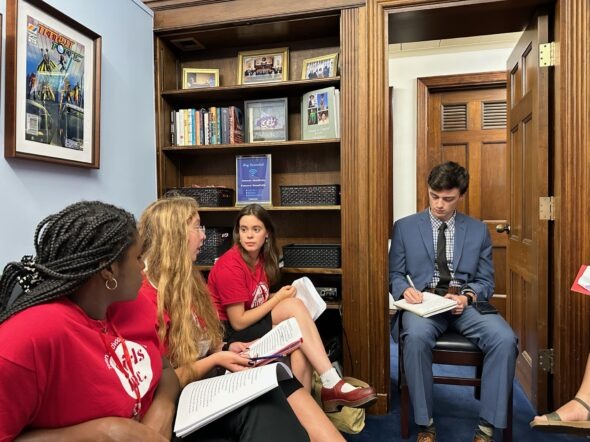Advocacy & Education
Join us and help create the world our girls deserve.

Stand beside girls and lend your voice to support them.
Girls Inc. knows that democracy is strongest when everyone is engaged and all voices are heard.
Be sure to know when your voice is needed.
Tell your elected officials that girls matter.